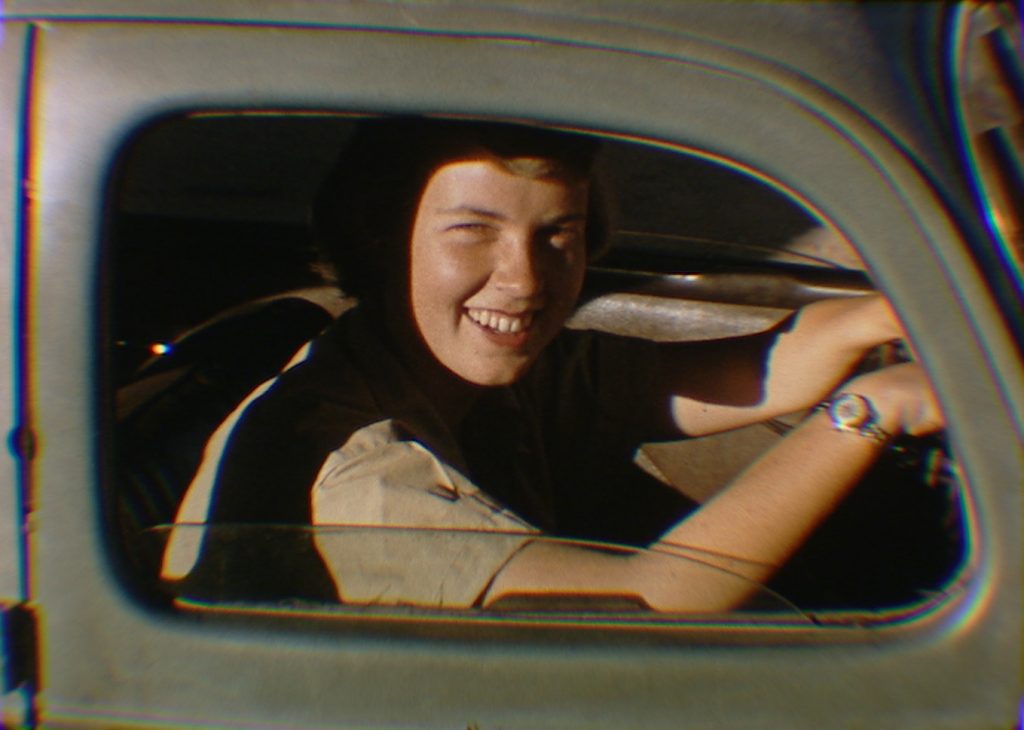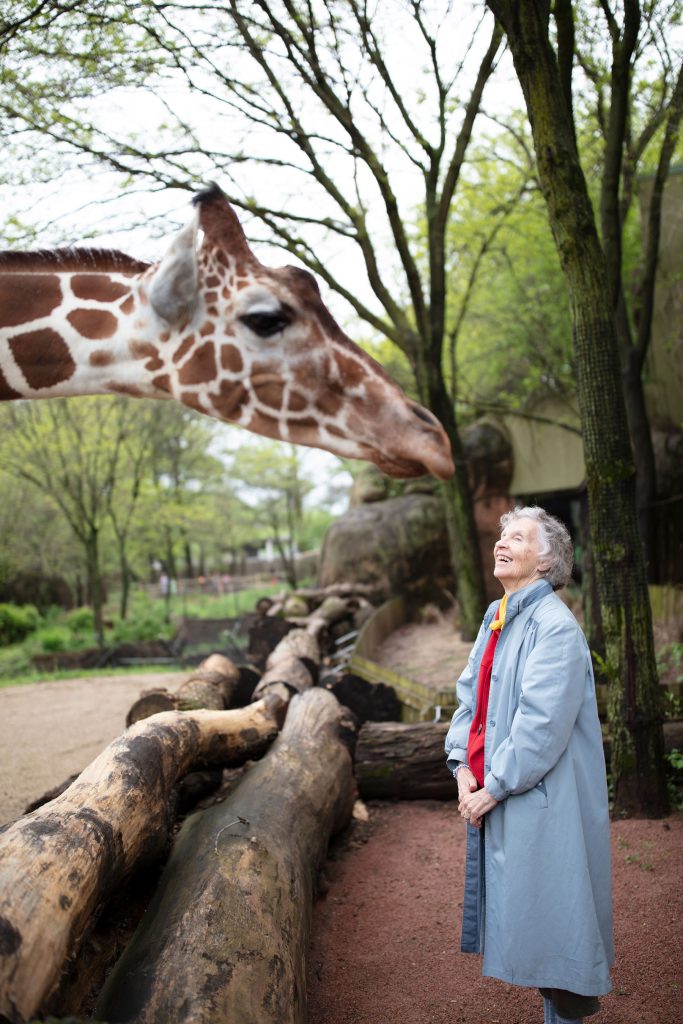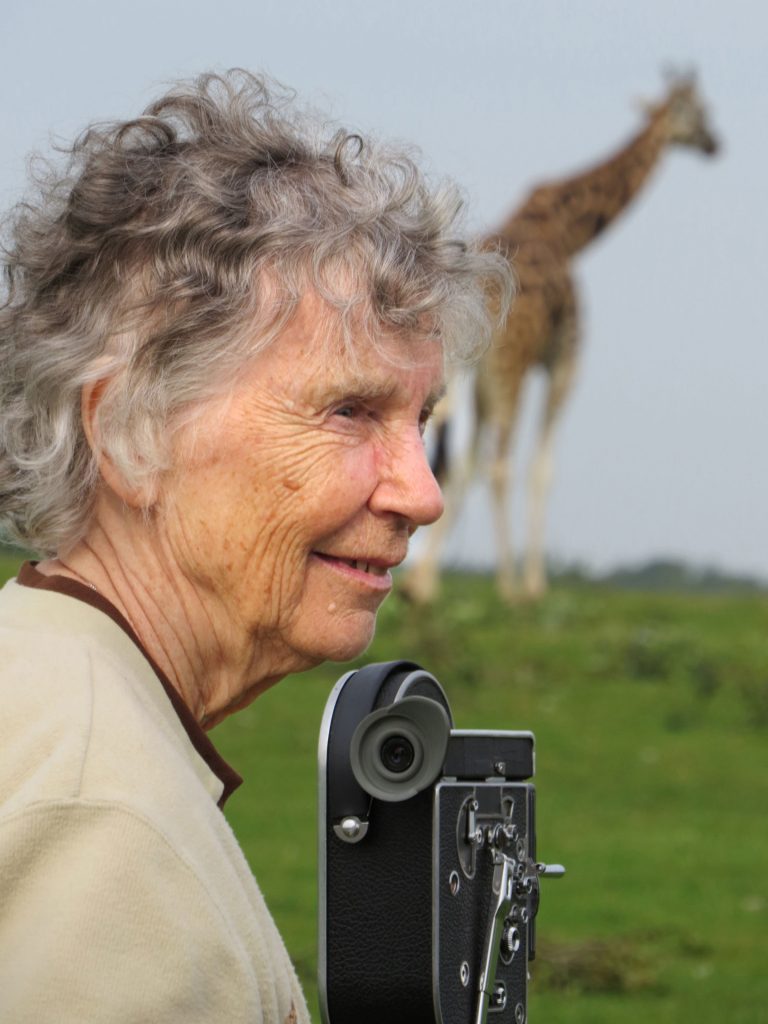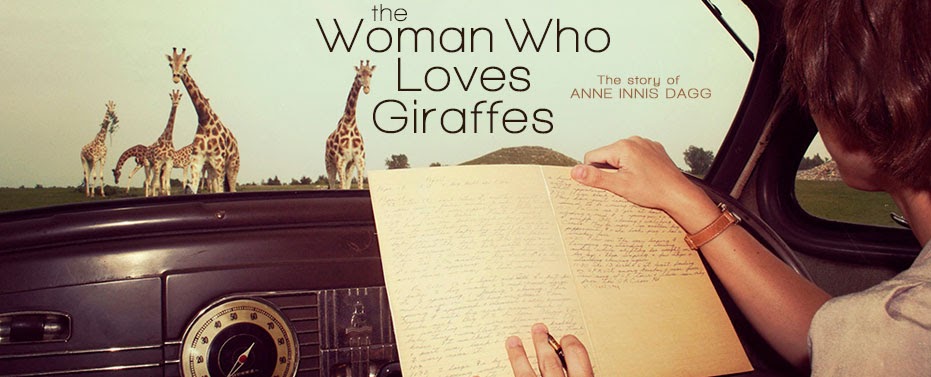A documentary called “The Woman Who Loves Giraffes” opening on Jan. 10 at the Quad Cinema in the Village chronicles the life and work of Anne Innis Dagg, a pioneer in the field of giraffe studies.
The movie chronicles Dagg going to South Africa by herself in 1956 at age of 23 to study giraffes in the wild, something noted in the film that was not done by women at that time.
Her journey was first met with resistance, a common theme throughout her professional life, but she persisted and became the first person to go to Africa to study a wild animal, four years before Jane Goodall’s journey to study chimpanzees and seven years before Dian Fossey’s work with mountain gorillas.
Dagg’s love of giraffes began at age 3 at the Brookfield Zoo in Chicago, when she saw the tall creatures and was struck by their unusual look. “Aren’t they curious?” says Dagg, now 87, in the film in present day. “Other animals aren’t curious like that.”
Very little was known of giraffes when she went to Africa. Dagg studied giraffes’ movements, what trees they ate from, and other behaviors. While those around her had trouble getting past the fact that a woman was doing this, she said she always just thought of herself as a person following her interests. “I was breaking ground without realizing it,” she says in the film.

Dagg would later return to her native Canada and teach, also having writing published in top science journals. But she faced discrimination at Canadian universities, including being denied tenure and having her credentials questioned.
Dagg fought for years to push back against discrimination, writing books on feminism and fighting sexism in Canada, along with publishing books on giraffes and other animals. She co-wrote a 1976 book, “The Giraffe: Its Biology, Behavior and Ecology,” which was the only book exploring scientific aspects of giraffes at the time, and current experts in the field credit her with essentially writing the textbook on the animals. Her most recent book was the 2016 “Smitten by Giraffe.”
She would never achieve fame like Jane Goodall, the film notes, perhaps because giraffes seem more unusual and alien compared to primates or other animals like elephants.
The film catches up with Dagg in recent years, when she was sought out by “giraffologists” in the scientific community. She has been given awards for excellence in giraffe science, invited to conferences, and she discovered that she has inspired generations of scientists and giraffe lovers through her books, despite her being away from the field herself for years.

She was also invited by a scientific team to go with them to Africa, her first trip back in half a century. The film follows Dagg on the emotional trip, where she visits once more with giraffes and talks to schoolchildren about the importance of conservation in the face of giraffes becoming increasingly endangered.
Dagg told this paper that she receives standing ovations at showings of the documentary. “I love going to the various [screenings],” she said, adding that people ask interesting questions and are concerned about the possibility of giraffes going extinct.
More people are learning of Dagg’s achievements thanks to the film, noted director Alison Reid, and Canadian universities have been trying to make amends for how she was treated, one apologizing and creating a scholarship in her name and another giving her an honorary doctorate. In late December, Dagg was appointed a member of the Order of Canada.
“I’m really lucky to be alive now and be able to enjoy this,” Dagg said.

Reid said viewers marvel that they haven’t heard of Dagg’s story before.
“They’re happy that it’s coming to light,” said Reid. “A lot of women are angry about what she faced at the universities.” She added that many men feel protective of Anne after seeing the movie, and say they cried during the film.
“I think it’s a film that moves and inspires people, and has some beautiful giraffe photography as well. It’s a feel-good film,” Reid said. “I hope people end up being inspired by it.”
Despite a growing worldwide trade of giraffe parts, Dagg and Reid said they were encouraged by legislation signed by Governor Cuomo in December that labels giraffes as “vulnerable” and bans trade of their parts.
Reid hopes the film keeps spreading the word about Anne Innis Dagg and the animals she has loved for so long. “It’s nice to see a film having an effect on giraffe conservation and Anne’s story,” said Reid.
Dagg and Reid will be at evening screenings of the film at Quad Cinema, 34 West 13th St., on Friday, Jan. 10 and Saturday, Jan. 11 for Q & A’s.




































